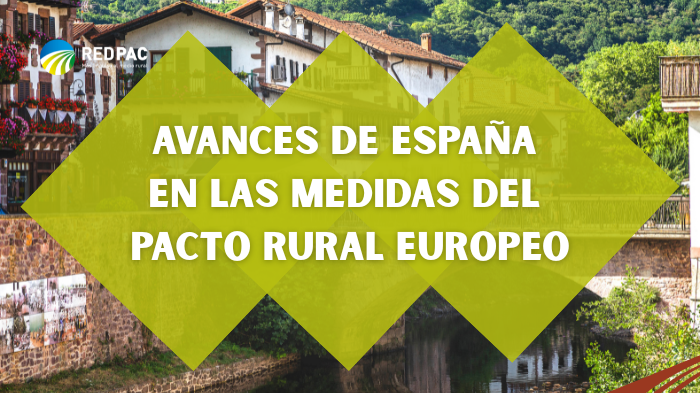
05 de June de 2025
The Rural Pact seeks to strengthen European rural areas by 2040.
- The Rural Pact seeks to strengthen European rural areas by 2040.
- Spain implements structural measures to improve governance, combat depopulation, and facilitate access to financing.
- The Castilian-Manchegan and Catalan models stand out for their leadership and multi-sector strategies.
The implementation of the Rural Pact in Spain is moving forward with measures that seek to integrate all levels of government and rural citizens into the transformation toward more resilient, connected, prosperous, and vibrant territories. This pact is an initiative of the European Commission (EC) and is part of its "Long-Term Vision for Rural Areas in the European Union (EU) ," with a 2040 horizon.
Since 2023, Spain has been an active member of the Rural Pact Coordination Group and works with the Support Office created by the European Commission to facilitate the deployment of measures and good practices adapted to local, regional, and national contexts. Above all, it seeks the introduction of specific rural policies originating from national governments, known as "rural proofing" or the rural guarantee mechanism, which is a key tool within the European Rural Pact to ensure that public policies take into account the specific needs of rural areas.
Multilateral governance and laws against depopulation
One of the most significant advances in Spain was the approval in 2021 of a specific law in Castilla-La Mancha to combat depopulation and promote rural development. This law mobilizes more than €3.3 billion from regional, national, and European funds, including NextGenerationEU funds . The main points of the legislation include:
- Creation of the Regional Council for Rural Development with inter-institutional and civil society participation.
- Cross-cutting coordination of all the regional ministries involved: agriculture, education, health, transportation, etc.
- Implementation of a specific regional strategy against depopulation.
- Combined use of European funds.
The role of Catalonia is also noteworthy, where the Rural Pact was designed through a participatory process, involving civil society, Parliament, and the regional government.
Local participation
The EC emphasizes the importance of directly involving rural communities through formal and informal structures, such as rural parliaments and networks. In Spain, the consolidation of these participatory spaces is being promoted:
- Promotion of thematic rural networks and multi-sector working groups.
- Inclusion of key stakeholders: small farmers, youth, rural women, micro-enterprises, and local representatives.
- Support for participation through travel budgets and specific training.
- Promotion of one-stop shops for accessing funds and simplifying procedures.
Furthermore, the vision for the future is implemented through holistic action plans, such as the French model, which integrates economic, social, and environmental measures into a single strategic framework.
Access to financing and simplification
Spain is working to improve access to European funds for rural areas with strategies that combine different EU financial instruments such as the European Agricultural Fund for Rural Development (EAFRD) , the European Regional Development Fund (ERDF) , and the European Social Fund (ESF). and the recovery instrument (NextGenerationEU) . It closely follows the model of the Czech Republic or the Tyrol region in Austria, which unified the management of funds to simplify procedures within a single authority or Local Action Group (LAG).
Since February 2024, a new Commission tool, called the "Rural Kit ," centralizes information on rural financing opportunities for the 2021-2027 period, facilitating the work of local experts, mayors, and project developers.
Rural verification
Another notable measure is the implementation of the rural verification mechanism using reliable data. Catalonia stands out for the publication of a biennial statistical book on the rural environment , which allows for monitoring and evaluating the impact of new regulations and legislative proposals.
At the European level, the Rural Areas Observatory , created in 2022, centralizes relevant information and promotes data-driven decision-making across the EU.











